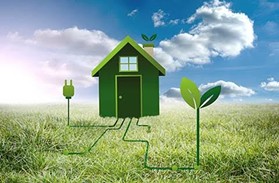Thursday, April 21, 2016
Pittsburgh ranks second for highest energy burden on African-American households
According to a report released this week, Pittsburgh was ranked second among metropolitan areas where African Americans spend the greatest proportion of their income on energy bills. The report by the American Council for an Energy-Efficient Economy (ACEEE) and the Energy Efficiency for All (EEFA) coalition ranked Pittsburgh among the top ten cities where energy burdens were found to be greatest for low-income households.
"No community needs this type of high energy burden," says Adrianna Quintero, executive director of Voices Verdes, a Latino coalition. "We're willing to take steps to tackle this problem and support energy efficiency measures."
The new report found that on average, low-income households spend 7.2 percent of their household income on utilities—more than three times the amount that higher income households pay. In Pittsburgh the rate is 9.4 percent.
"We do see this as a civil rights issue," says Jacqueline Patterson, director of the NAACP's Environmental and Climate Justice Program. "Given the disproportionate impact of energy on communities of color, we absolutely see this essential to our civil rights agenda."
The report also looked at the health effects for families living in homes struggling to pay utility bills. It found that the burden increases financial stress, cases of asthma, respiratory problems, heart disease, arthritis, and rheumatism.
"Improperly heated homes or homes that are sporadically heated can aggravate certain respiratory conditions," says Ariel Drehobl, research analyst and lead report author. "In warm climates, extreme heat can also be a problem for people with respiratory conditions who have trouble breathing."
Among the report's recommendations is increased investment in energy efficiency programs. This would include "targeting multifamily buildings with energy efficiency investments; using demographic data in program evaluation; and strengthening low-income targets and goals for utility programs."
"We don't quite know what the causes of high energy burden in specific cities are," says Drehobl. "These policy recommendations that we put forward, cities should look at these and determine what works best for them in relation to utility programs. Look at what cities provide, if these programs can be improved to make sure they're reaching the most overburdened households."
The results of the study are being looked at by Voices Verdes, the NAACP and other organizations in an effort to help address the burden utility bills have on low-income and minority communities.
"The results of this study have to be taken in the context of the affordable housing crisis we're facing today," says Khalil Shahyd of the Energy Efficiency for All coalition. "Even while rents are increasing, energy costs are increasing a lot faster. The rates also track very well to rates of poverty in these cities."
"No community needs this type of high energy burden," says Adrianna Quintero, executive director of Voices Verdes, a Latino coalition. "We're willing to take steps to tackle this problem and support energy efficiency measures."
The new report found that on average, low-income households spend 7.2 percent of their household income on utilities—more than three times the amount that higher income households pay. In Pittsburgh the rate is 9.4 percent.
"We do see this as a civil rights issue," says Jacqueline Patterson, director of the NAACP's Environmental and Climate Justice Program. "Given the disproportionate impact of energy on communities of color, we absolutely see this essential to our civil rights agenda."
The report also looked at the health effects for families living in homes struggling to pay utility bills. It found that the burden increases financial stress, cases of asthma, respiratory problems, heart disease, arthritis, and rheumatism.
"Improperly heated homes or homes that are sporadically heated can aggravate certain respiratory conditions," says Ariel Drehobl, research analyst and lead report author. "In warm climates, extreme heat can also be a problem for people with respiratory conditions who have trouble breathing."
Among the report's recommendations is increased investment in energy efficiency programs. This would include "targeting multifamily buildings with energy efficiency investments; using demographic data in program evaluation; and strengthening low-income targets and goals for utility programs."
"We don't quite know what the causes of high energy burden in specific cities are," says Drehobl. "These policy recommendations that we put forward, cities should look at these and determine what works best for them in relation to utility programs. Look at what cities provide, if these programs can be improved to make sure they're reaching the most overburdened households."
The results of the study are being looked at by Voices Verdes, the NAACP and other organizations in an effort to help address the burden utility bills have on low-income and minority communities.
"The results of this study have to be taken in the context of the affordable housing crisis we're facing today," says Khalil Shahyd of the Energy Efficiency for All coalition. "Even while rents are increasing, energy costs are increasing a lot faster. The rates also track very well to rates of poverty in these cities."
Tags: energy efficiency , utility , Pittsburgh , housing , minority , low-income , Image















